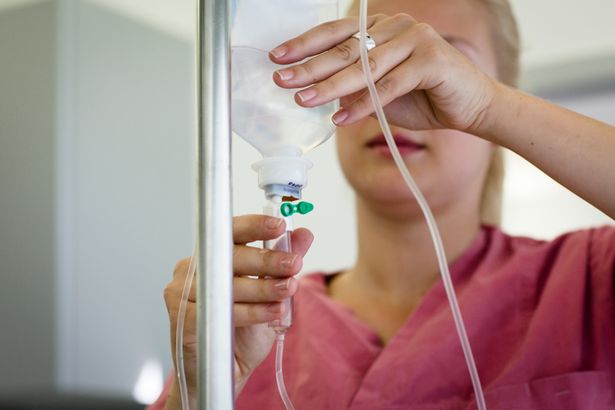Long Covid could be treated with experimental heart drug as patient ‘cured’ of symptoms – World News
Long Covid sufferers could be treated using an experimental heart drug after it reportedly cured a 59-year-old man.
German doctors are said to be investigating whether the BC 007 drug, a compound developed by the German biotech company Berlin Cures to treat heart failure, could be offered more widely.
It could mean cutting recovery times by months, as many Covid sufferers say they experience ongoing severe fatigue, headaches and fevers.
The patient was originally given the drug to treat his glaucoma, before medics reportedly found it had also helped alleviate his long Covid symptoms.
Doctors in Bavaria who treated him said: “Even within a few hours an improvement became apparent.”

(Image: Getty Images)
Scientists will now trial the drug to determine if its wider success and whether it can be repeated, reports The Times.
The drug remains in the second phase of clinical trials and has yet to be brought to market.
It works by sticking to the auto-antibodies and destroying them, preventing them from attacking organs in the body, according to Berlin Cures.
It is thought up to two million Brits have or are experiencing Long Covid.
However, receiving two doses of a coronavirus vaccine can reduce someone’s chances of suffering from Long Covid by a third if they catch the virus, a new study has suggested.
The new research says the latest data suggests people who still get the virus despite being full vaccinated appear far less likely to develop ongoing longterm health effects.

(Image: Getty Images/iStockphoto)
Debilitating ‘Long Covid’ is thought to have affected more than one million people in the United Kingdom.
The landmark new study from scientists at King’s College London, published in a paper by the Tony Blair Institute, found the vaccine rollout appears to be dramatically reducing the risks of developing Long Covid.
The condition is not yet fully understood, but signs and symptoms can include ongoing shortness of breath, fatigue, brain fog, headaches, a racing heartbeat, mental health problems, and even longterm damage to organs including the kidney and heart.
The study’s authors say their findings should be shared with vaccine-hesitant people, and youngsters at low risk of severe infection who don’t think they need the jab.
The figures come from King’s College’s collaboration with the ZOE Covid app study, which has been tracking people’s symptoms throughout the pandemic.


